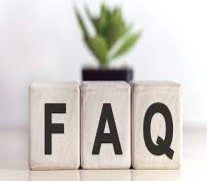
Insurance Licensing FAQ's
Insurance Licensing FAQs
(From the desk of: Insurance Training Associates – ITA)
Is a career in insurance a good career choice?
Absolutely! In fact, the Bureau of Labor Statistics projects that an insurance career is expected to grow 7% annually from 2020 to 2030. The 7% growth equates to approximately 50,000 new insurance agent every year.
Can I sell insurance or service customers without an insurance license?
The answer is simply, no. However, Insurance sales certainly requires being licensed, but not all licensing service personnel need to be licensed; it depends on the state. If the person (in insurance) is engaged with the customer by taking payments, offering guidance, making coverage changes, quoting insurance, and reporting claims, then they must be licensed. However, back-room personnel may not require a license. It is our opinion that the best solution is to get everyone licensed to avoid future problems.
How long do I have to study before I can take the insurance exam?
Some states require certified pre-license training (check our link to State Requirements), and the student must complete all training requirements prior to being allowed to take the exam. Other states only require successful completion of the state license exam and do not have a mandatory training requirement. Generally, it takes anywhere from a few weeks to a few months of study before most are ready to take the exam. Our goal is to get you to the exam as soon as possible, and to help you pass it the first time.
I have completed my training and am ready for the state exam, what do I need to do next?
You will need to schedule the exam by contacting the state exam vendor (PSI, Prometric, Pearson-Vue, etc.) to set a date. You should show up at the exam center early and show the required credentials (driver’s license and certificate of completion, if applicable) as stated in the vendor booklet. Here, you will be given instructions on how to proceed.
What is the pass rate on taking the insurance exam?
The pass rate varies by state, but a typical first-time test taker pass rate may be in the 50% area. It is not an easy exam and must be taken seriously. After 15 years of experience, ITA exceeds the average pass rate throughout the US.
My recruiter tells me that I need a multi-lines license. What does that mean?
A multi-lines license is a combination of a property/casualty and life/health license. Typically, an insurance company that offers all the above products will want their producers (agents) licensed in all aspects of insurance.
What is the difference between an insurance agent, insurance producer and insurance broker?
There is little distinction between insurance agent and insurance producer. Both require a license and most states recognize them as being essentially the same. An insurance agent is appointed by an insurance company and must place the interests of the insurance company first (yes, even before customers!). An insurance producer is slightly different in that they are only required to be licensed to sell insurance. If they are appointed by an insurance company, they follow the requirements of the company appointing them. An insurance broker on the other hand may or may not be appointed by an insurance company. A broker’s first and foremost obligation is to the customer.
What are the basic requirements of an insurance agent after licensing?
Sales and Service. Insurance agents will look for sales opportunities with existing customers and seek new customers to expand their sales base. The service side is just as important as sales, which is servicing the needs of the policyholder. Being an insurance agent embodies wearing many different hats: a sales agent, a customer service agent, and a marketing and information agent. Each aspect supports the other two while maintaining and enlarging the business’ customer base.
What insurance jobs require a license?
As mentioned above, insurance sales require licensing, but so do Customer Service agents who engage with the customer by quoting insurance or making policy changes/recommendations. In some states, insurance solicitors must be licensed. Solicitors are people who gather insurance applicants but are not allowed to sell insurance products. Independent Claims Adjusters are required to be licensed in most states. Other less common insurance licenses are crop, credit, travel, car rental and surplus lines.
Why should I use your company to help me get licensed?
Since 2006, Insurance Training Associates (ITA) has helped thousands of prospects secure an insurance license through a course of study that is considered the best in the industry. Our content is concise, focused, and is easy to read and understand. In addition, our quizzes and practice exams are closely related to the actual exam questions that appear on the various state insurance exams.
I am considering a career as a claims adjuster, what should I know?
Insurance claims adjusters represent the insurance company in assessing payment after a claim has been made. Public adjusters represent the interests of the claimant (the person filing the claim). We will focus on the insurance claims adjusters.
There will be a claims adjuster for each line of insurance. There are life insurance adjusters, health insurance adjusters, and property/casualty (sometimes called General Lines Adjuster).
Most insurance companies hire their own claims adjusters to represent their interests. These are called “house adjusters.” These “house adjusters” typically, are not required to obtain a state insurance license. The reason given is the insurance company is responsible for all aspects of training for their claims adjusters, including ethics training, and the states do not see a need to interfere with the insurance company training programs. This is changing in many states as more states are requiring “house adjusters” to secure a license and complete regular continuing education requirements.
The other type of claims adjuster is the independent claims adjuster. These people can represent a variety of insurance companies. Quite often, after an earthquake, flood or some other devastating natural disaster, the influx of claims will overwhelm an insurance company and they will hire a lot of independent claims adjusters to assist in managing the caseload.
In most states, independent claims adjusters must pass an examination, apply for a license, and complete continuing education requirements before every license renewal.
Related Posts
Where's the Beef?
Where’s The Beef?
....



